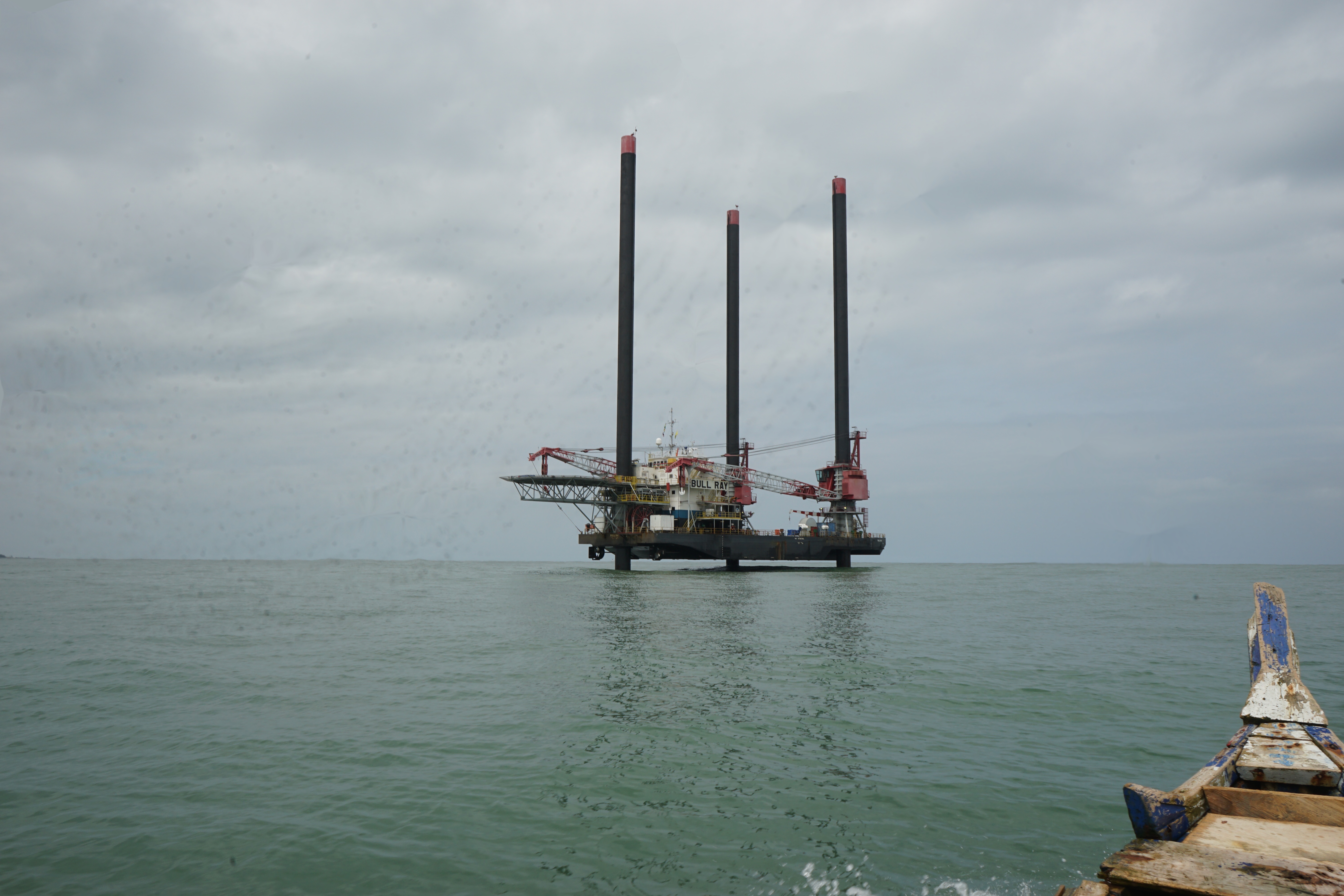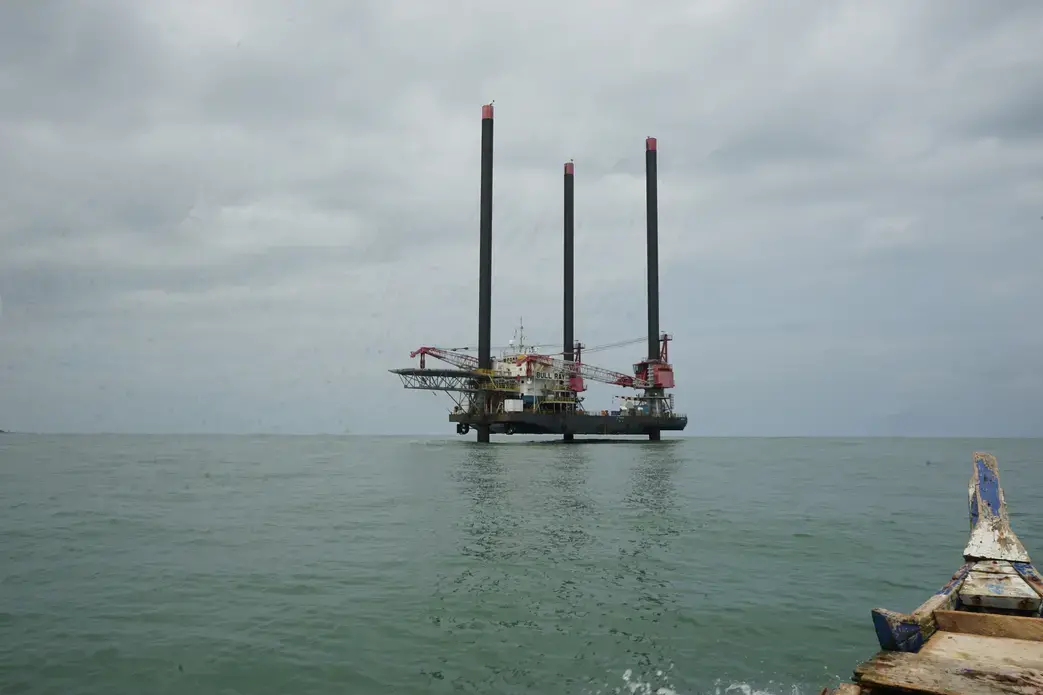TAKORADI, Ghana—It's early in the morning and Kwame Boateng is leaving his modest apartment to go to his job. For three and a half years he has worked as a technician for a petroleum service company off the coast of Takoradi in western Ghana. The company he works for, MODEC (Mitsui Ocean Development & Engineering Co., Ltd), does not own any of the resources coming out of the ground, but instead provides services to the companies that distribute and sell the oil and gas products.
Boateng, who asked that real name not be used so that he could speak candidly about the company, was raised in Ghana's capitol of Accra and later attended a university in Kumasi where he received an engineering degree that allowed him to find a job in Ghana's blossoming oil and gas industry. Many of Boateng's co-workers have had very similar career paths, and nearly all attended the same university, the Kwame Nkrumah University of Science and Technology.
Following the discovery of oil and gas reserves off the Ghanaian coast in 2007, the oil and gas industry has been a popular career choice for young Ghanaians because local laws set limits for what percentage of the work force can come from outside of Ghana. However, these laws have failed to ensure that Ghanaian workers are paid on an equal basis with foreign workers, mostly coming from Europe.
According to the Hays Oil and Gas Annual Salary Report, Ghanaian workers received an average annual salary of $26,800 while imported workers in Ghana took home an average of $128,500 in 2013. Not only does this reflect a large pay gap, but it also signals a pay cut taken by Ghanaian workers. Hays reported that in 2012 Ghanaian workers earned on average $40,500.
"There was clear-cut discrimination—the policies and regulations regulating the oil and gas industry do not work," Boateng said.
At MODEC, the pay gap became so unfair that Ghanaian workers employed by MODEC chose to organize a demonstration at MODEC's offshore facilities. In response, MODEC fired all the workers involved in the demonstration. This case was picked up by the (General Transport, Petroleum, and Chemical Workers Union (GTPCWU) and the labor union has been involved in collective bargaining negotiations with the company since the dispute began in October 2014.
Pay discrimination is also a violation of Ghana's Labour Act 651, passed in 2003. "Our law says if someone is coming to do the same job as a Ghanaian, they must get paid the same as a Ghanaian," said Boateng. So far no companies have been disciplined by the government for violating this law, causing many workers to lose faith in the government's ability to enforce the regulations surrounding the oil industry
GTPCWU's General-Secretary Fusseini Iddrisu believes that MODEC had little choice in how they approached the issue. "Tullow is the main blame behind this. MODEC, for instance, is servicing Tullow. From our experience, we realized that Tullow is always influencing MODEC. MODEC has little independence to deal with anything." Both Tullow and MODEC declined interview requests.
In July 2015, Ghana's National Labour Commission directed MODEC to pay off the dismissed workers instead of reinstating them, a ruling that disappointed the workers and union.
The issue of unequal pay for equal work has been compounded by extreme inflation, which has plagued Ghana's economy recently, a trend that some have attributed to the mismanagement of the oil resources. In 2014, Ghana's inflation rate was around 17 percent, one of the highest in the world. Workers like Boateng have been unable to afford some basic expenses such as healthcare, which is not a benefit given to Ghanaian workers by many of the oil companies.
"Because of inflation, the price of my accommodation has doubled with little change to my salary. I have to come up with the extra money myself," explained one Ghanaian who works in his company's IT department.
Additionally, Boateng and other members of the GTPCWU worry about their job security because of their association with the union. Boateng explained that management has begun to give more attractive packages to workers that are not involved in the union as a tactic to weaken the union.
"They [management] are just looking for some flimsy excuse to get you out if you are associated with the union," Boateng said. The presence of the union ensures that Ghanaian workers are allowed to work every day. "Before the union, you would come to work one day, get to the security point and they could tell you 'the manager says you should not come to work today,' and that would be the end."
























